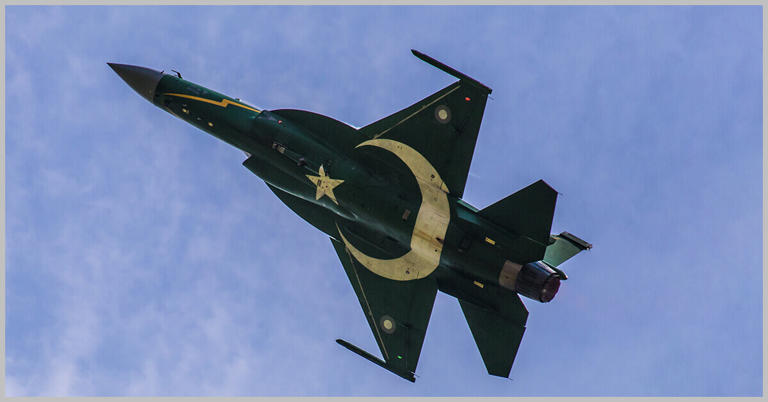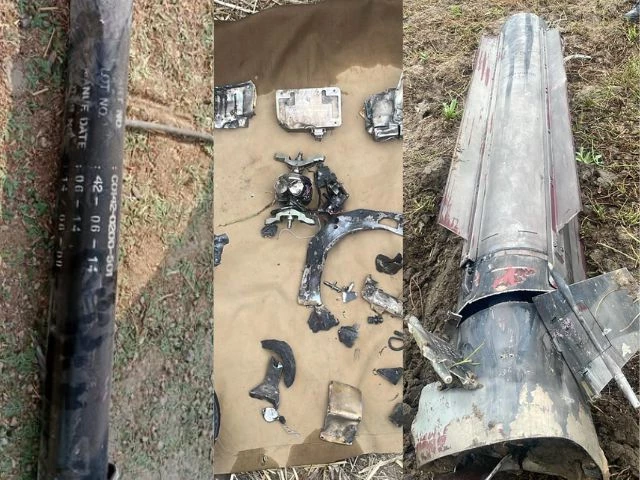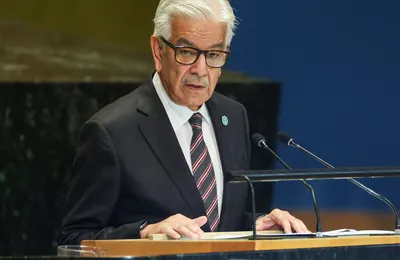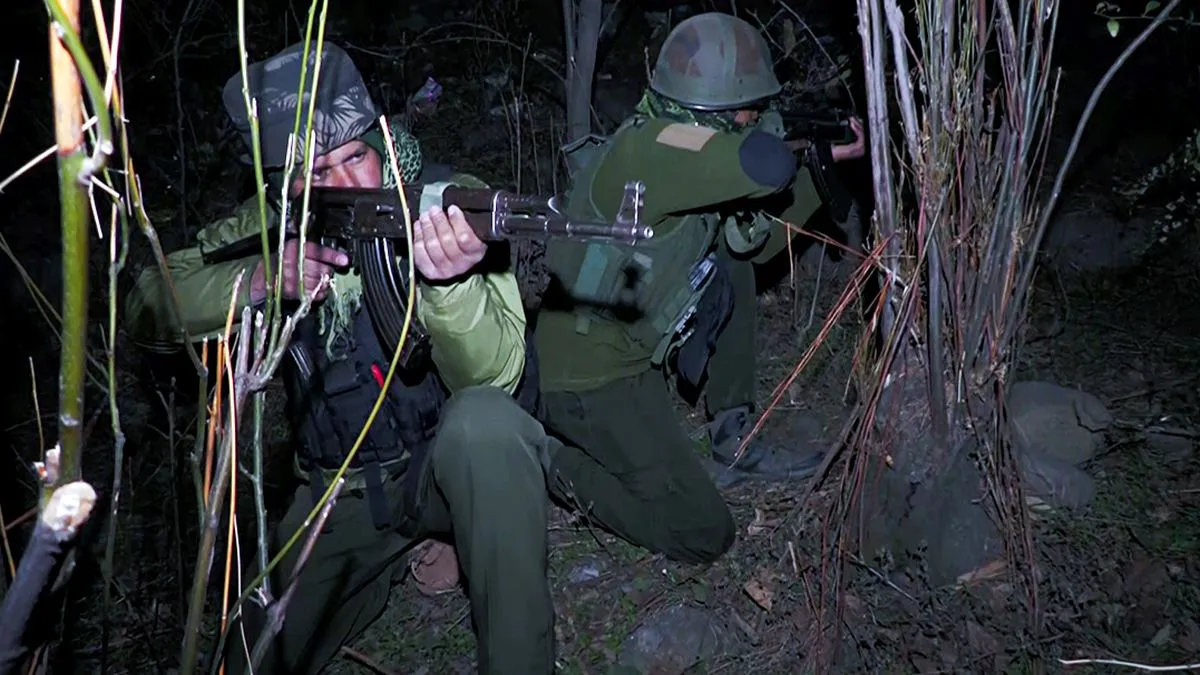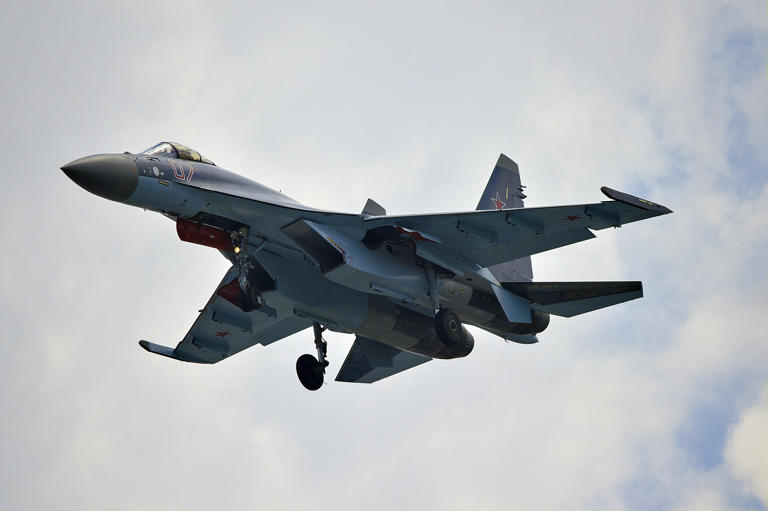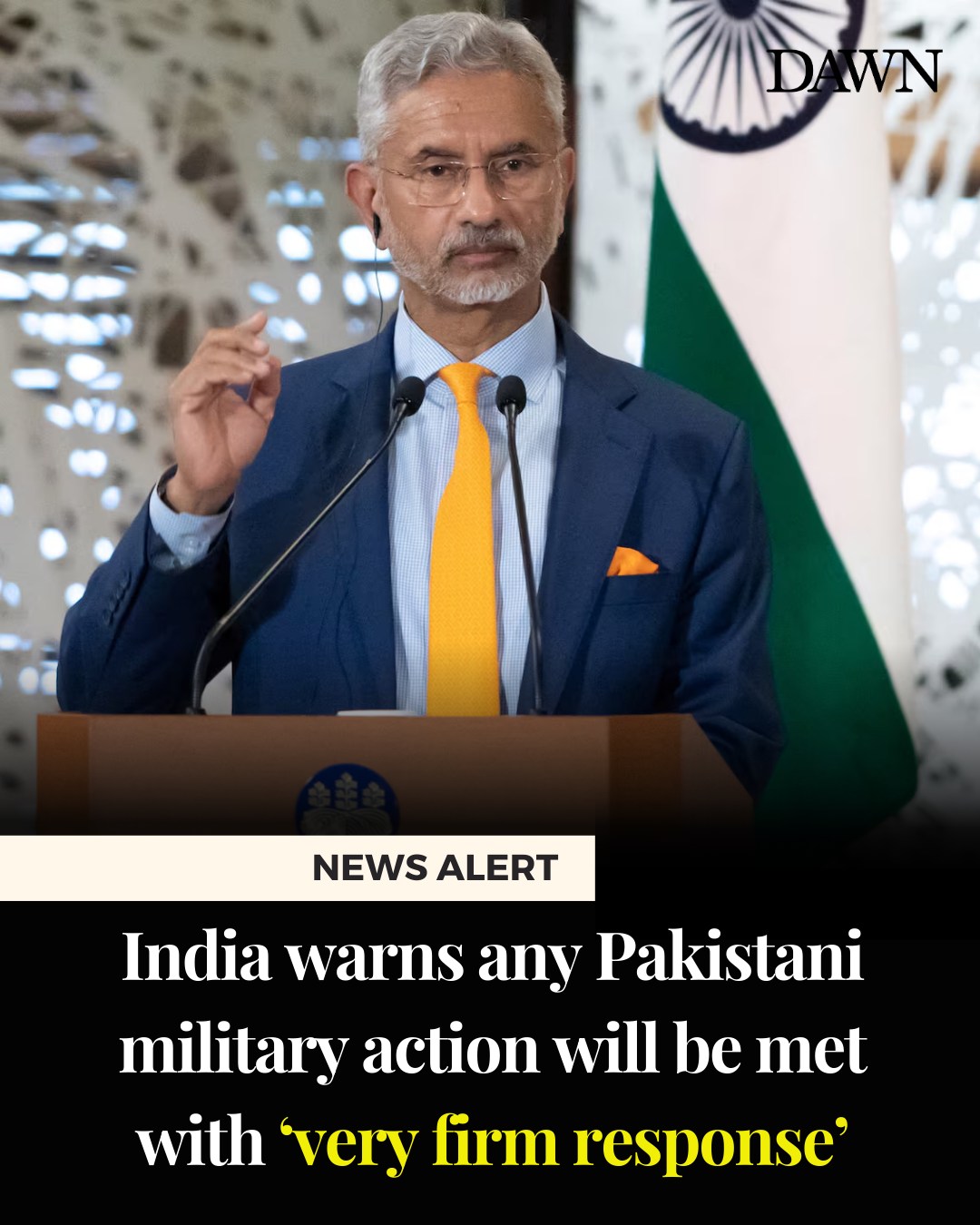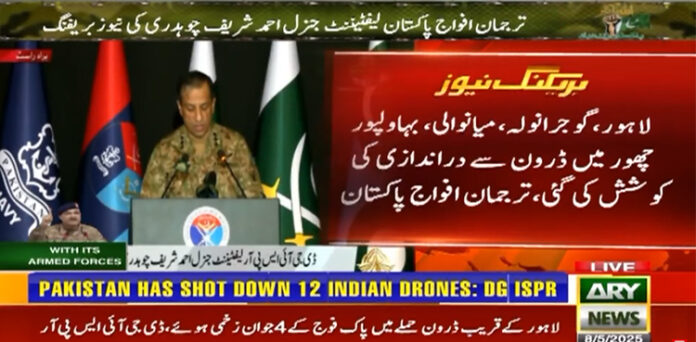A senior official from the Pakistan Air Force (PAF) has asserted that Pakistan’s air defense systems are fully capable of intercepting hypersonic weapons, marking a significant development in the region’s defense capabilities. During a press briefing, Air Vice Marshal Aurangzeb Ahmed stated that Pakistan’s air defense infrastructure is equipped to counter high-speed threats, including hypersonic missiles. He highlighted a recent incident where the PAF responded within two minutes to an attempted breach of Pakistani airspace, successfully downing an Indian fighter jet. Additionally, Pakistan has claimed the successful deployment of Chinese-supplied CM-400AKG hypersonic missiles, which were reportedly used to target and destroy India’s S-400 air defense system. These advancements suggest a shift in the strategic balance in South Asia, emphasizing the need for continued dialogue and confidence-building measures to maintain regional stability.
In the early hours of Saturday, May 10, 2025, residents across Islamabad and various cities in Khyber Pakhtunkhwa (KP) experienced tremors from a 5.3-magnitude earthquake originating from the Hindu Kush region of Afghanistan. The seismic event, occurring at 10:08 AM Pakistan Standard Time, was felt in areas including Peshawar, Mardan, Swat, Nowshera, and North Waziristan. The Pakistan Meteorological Department confirmed the earthquake’s depth at approximately 230 kilometers, contributing to widespread but mild surface shaking. The tremors prompted residents to evacuate buildings, though no immediate reports of casualties or significant property damage were noted. This event underscores the region’s seismic vulnerability and the importance of earthquake preparedness and resilient infrastructure.
In a significant escalation of cross-border tensions, Pakistan reportedly deployed between 300 to 400 Turkish-made Asisguard Songar drones across 36 locations along India’s western frontier during the nights of May 7 and 8, 2025. This large-scale aerial incursion targeted Indian military installations and critical infrastructure, marking a notable shift in the use of unmanned aerial vehicles (UAVs) in regional conflicts. The drones, launched from Leh to Sir Creek, aimed to infiltrate Indian airspace and gather intelligence on military assets. The Indian Armed Forces responded by neutralizing many of these drones. The Asisguard Songar, Turkey’s first indigenously developed armed drone system, is equipped with a stabilized 5.56 mm NATO standard assault rifle and can be fitted with various payload options. The deployment of these drones raises questions about the proliferation of advanced military technology and its impact on regional stability, highlighting the need for international regulations governing the export and use of armed drones.
Amid escalating tensions, Pakistan’s Defense Minister Khawaja Asif stated that the nuclear option is currently “not on the cards,” but warned of potential global consequences if the situation worsens. The conflict, triggered by an April 2025 attack on Indian tourists in Kashmir, led to India’s “Operation Sindoor” and Pakistan’s retaliatory “Operation Bunyan-ul-Marsoos.” Despite a U.S.-brokered ceasefire on May 10, 2025, violations persist. Pakistan’s “full spectrum deterrence” policy allows nuclear use in response to significant threats. The international community urges restraint and dialogue. The volatile situation underscores the need for continued mediation and diplomatic efforts.
In a significant escalation, Pakistan has resumed heavy shelling in the Poonch sector of Jammu and Kashmir, intensifying border tensions. This marks a continuation of ceasefire violations along the Line of Control, with the Indian Army responding proportionately. The shelling has caused significant civilian distress, with at least 15 civilians killed and 43 injured in Poonch district, leading to evacuations. This resurgence follows India’s “Operation Sindoor,” targeting terrorist infrastructure, and has drawn international concern, with calls for restraint from global leaders. The situation remains volatile, highlighting the urgent need for diplomatic engagement and de-escalation.
Emirates (UAE) has turned down a request from the Board of Control for Cricket in India (BCCI) to host the remaining matches of the tournament. This decision is influenced by the Emirates Cricket Board’s (ECB) prior commitment to host the concluding matches of the Pakistan Super League (PSL) 2025. The backdrop of this decision is marked by escalating tensions between India and Pakistan, which have led to disruptions in major cricket tournaments in both nations. With the UAE unavailable, the BCCI is now exploring alternative venues such as England or South Africa, although this poses potential scheduling conflicts with other international cricket events. The situation highlights the challenges of organizing international sports events amidst geopolitical tensions.
In a significant development in South Asian military affairs, Pakistan has confirmed the deployment of Chinese-made J-10C fighter jets in response to recent Indian military actions. This marks a notable moment in the region’s defense dynamics, highlighting the evolving alliances and military capabilities of both nations. As tensions between India and Pakistan continue to escalate, the introduction of advanced Chinese fighter jets into the conflict underscores the shifting strategic balance in South Asia. This blog explores the implications of this deployment, the international reactions, and the broader concerns for regional security. Join us as we delve into the evolving military landscape and its potential impact on the ongoing India-Pakistan conflict.
As Pakistan faces an education emergency and rising tensions with India, school closures, digital gaps, and conflict zones disrupt learning. Explore how contingency planning and digital education can protect the future.
In a significant escalation of regional tensions, Indian Foreign Minister S. Jaishankar has issued a stern warning to Pakistan, asserting that any military aggression will be met with a “very, very firm response.” This declaration follows India’s recent missile strikes on multiple locations within Pakistan, targeting what it describes as terrorist infrastructure
In recent days, a wave of concern has swept across Pakistan following alleged drone attacks believed to have originated from Indian territory. These incidents have raised serious national security questions: How are Indian drones managing to breach Pakistani airspace? Why isn’t our defense system detecting and intercepting them? The public is demanding transparency, accountability, and immediate answers from the relevant authorities.
